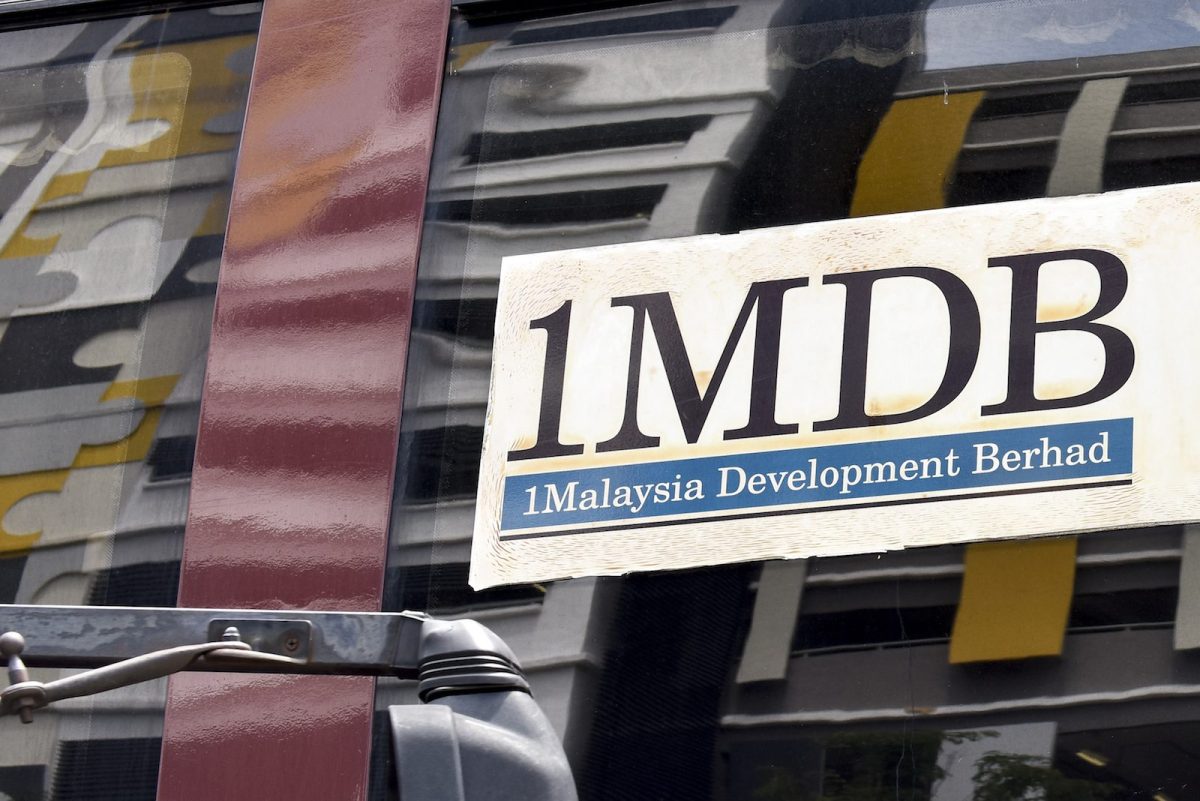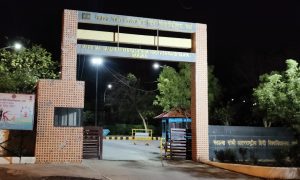SINGAPORE – Former Malaysian Prime Minister Najib Razak was found guilty and sentenced to prison by a high court judge on Tuesday (July 28) in the first of several trials linked to multi-billion-dollar corruption allegations at the 1Malaysia Development Berhad (1MDB) state fund. The verdict makes the 67-year-old the first and only ex-national leader ever to be criminally convicted.
In a long-sought day of reckoning, the scandal-plagued former premier was ruled guilty on all seven charges that include money laundering, criminal breach of trust and abuse of power in connection with the misappropriation of 42 million ringgit (US$9.8 million) from 1MDB unit SRC International Sdn Bhd, which was funneled into his personal bank accounts.
“After considering all evidence in this trial, I find that the prosecution has successfully proven its case beyond a reasonable doubt,” Kuala Lumpur High Court Judge Mohamad Nazlan Mohamad Ghazali said. Najib’s defense lawyers contended that he was a victim of a scam and are applying for a stay of execution pending the hearing of his appeal.
The former prime minister was sentenced to 12 years in jail and handed a fine of 210 million ringgit ($49.3 million). If Najib fails to pay the fine, he will serve an additional five years in prison by default. “The sentence is not only to punish offenders but to deter other people from repeating the offense,” said the high court judge.
Before his sentencing, the ex-premier delivered an off-the-cuff speech from the dock where he reiterated he had “no knowledge” of the misappropriated funds. “As a Muslim, although I said this during the early part of the trial, let me say this again. Wallahi Wabillahi Watallahi,” he told the court, reciting an oath used by Muslims to swear on the truth of their word.
Prosecutors have leveled 35 other charges in four other trials against Najib, who has always been adamant that he committed no crime. He is expected to remain out of prison until appeals are exhausted. Investigators at the US Department of Justice (DoJ) say an estimated $4.5 billion was embezzled from 1MDB between 2009 and 2014.
The landmark verdict is widely seen as a barometer of Prime Minister Muhyiddin Yassin’s commitment to anti-corruption reform and the rule of law. Many feared prior to the ruling that Najib could walk free due to Muhyiddin’s fragile governing alliance with the United Malays National Organization (UMNO), the previous ruling party Najib led.
“Muhyiddin will, of course, try to claim credit for ensuring judicial independence and so on under his leadership,” said Oh Ei Sun, a senior fellow at the Singapore Institute of International Affairs. “In a sense, this verdict vindicates Muhyiddin and vindicates those who said there was something fishy about 1MDB.”
The historic ruling follows a $3.9 billion settlement deal reached between Malaysia and Goldman Sachs on July 24 over the US investment bank’s role in the sprawling 1MDB scandal. An ostensible victory for Muhyiddin’s four-month-old administration, the settlement paves the way for the largest yet recovery of pilfered state funds.
In an ironic twist, Najib’s conviction comes exactly five years after he sacked Muhyiddin, his former deputy prime minister, over his criticism of the then-premier’s handling of allegations surrounding the 1MDB scandal. Muhyiddin was expelled from UMNO the following year and formed a new alliance with opposition parties.

Najib and UMNO were swept from power in a historic 2018 election, returning Muhyiddin to government under the Pakatan Harapan (PH) coalition led by Prime Minister Mahathir Mohamad. The PH government initiated corruption probes and brought charges against the ex-premier, his family members, top UMNO leaders and over a dozen Goldman executives.
But a tussle for political power in February resulted in Mahathir’s shock resignation and saw Muhyiddin turn his back on his PH allies in favor of a new ethnic Malay Muslim coalition, Perikatan Nasional (PN), in league with UMNO and its corruption-tainted leaders. Inaugurated in March, the 73-year-old’s premiership rests on a mere two-seat governing majority.
The milestone verdict has seismic political implications given that Najib, who still wields sizable influence over UMNO, will now be disqualified as an elected representative and candidate in the next general election, dashing his political comeback prospects. Muhyiddin is said to be considering a snap election by March 2021 or earlier.
“On the other hand, the ruling also destabilizes the government,” Oh added. “There will be a rush by factions within UMNO to try to fill the political void left by Najib. Many of these factions would like to challenge one another and will even try to gobble up Muhyiddin and his party in the coming general election.”
Bridget Welsh, an honorary research associate at the University of Nottingham Malaysia Asia Research Institute, sees Najib as posing more of a political challenge to Muhyiddin than his former PH opposition allies, who accuse him of having engineered an undemocratic power grab. “Muhyiddin has removed his political rival as of today,” she said.
“Najib’s comeback door is closed. That doesn’t mean the door cannot be opened again, but the fact is the door right now is closed,” added Welsh. “What a lot of people in UMNO have gotten is the potential for an UMNO without Najib’s baggage [and this] potentially offers opportunity for new alliances.”
After his election loss, Najib deftly harnessed social media to shed his image as an opulent blue-blooded elite. Adopting the persona of a moped-riding populist disruptor, he enjoyed an unexpected upsurge in popularity as he launched barbs against his political opponents on Facebook and shared light-hearted updates on Instagram.
Spanning a total of 95 days, Najib’s SRC trial saw a total of 76 witnesses take the stand since April 3, 2019. The former premier himself began testifying in December after being ordered to enter his defense. Throughout his testimony, Najib continually maintained that funds transferred into his account were donations from the Saudi royal family.

In a 243-page defense statement he read out in court, the 67-year-old testified that he was misled by fugitive Malaysian financier Low Taek Jho, who had helped set up 1MDB and made key financial decisions despite holding no official position at the state fund. Low’s whereabouts are unknown though authorities believe he could be hiding in China.
Judge Mohamad Nazlan ruled that it was too “far-fetched” to suggest that the then-premier could have fallen victim to a scam perpetrated by flamboyant businessman Low, and ruled the Saudi donation as being improbable. “All roads lead to Rome and [the accused] led it to Riyadh,” the high court judge quipped.
As the owner of the accounts, Judge Mohamad Nazlan said it “would be extraordinary that the accused, as the then PM and finance minister, did not know about” matters concerning the 42 million ringgit embezzled from SRC International, which Najib legally owned as finance minister. The ex-premier took no action to return the funds, ruled the judge.
“It has been a good day for Muhyiddin. There is no question that he has gained in popularity by being seen to allow the court to make its decision,” said Welsh. “He himself stood up against 1MDB and what his decision signals is that he is seen as putting Malaysia first as opposed to politics.”
For Goldman Sachs, meanwhile, its deal with Malaysia brings resolution to a key front in a multi-jurisdictional investigation that has cast shadows over the Wall Street firm. Last week, it agreed to a $2.5 billion cash payout to the Malaysian government and a guarantee to return at least $1.4 billion in assets linked to 1MDB bonds that have been seized around the world.
In return, Malaysia will drop all pending criminal charges against the bank, which had pleaded not guilty and consistently denied wrongdoing, and its employees except for Tim Leissner and Roger Ng, the two former Goldman bankers accused of helping Low launder money raised in bond deals facilitated by the Wall Street bank in 2012 and 2013.
“This settlement represents assets that rightfully belong to the Malaysian people,” Tengku Zafrul Aziz, Malaysia’s finance minister, said in a statement on July 24. “This settlement by Goldman Sachs represents its acknowledgment of the misconduct of two of its former employees in the broader 1MDB fraudulent and corruption scheme.”
Goldman helped 1MDB raise $6.5 billion in three bond issuances, roughly $2.7 billion of which US prosecutors allege was diverted through offshore bank accounts and shell companies linked to Low and his business partners. A transfer of $681 million was allegedly made into the personal bank account of Najib, which he also claims was a Saudi donation.

Malaysian prosecutors brought charges against three units of the bank in 2018 and criminal charges were subsequently filed against 17 current and former Goldman executives. The previous PH government had demanded $7.5 billion in compensation, a figure equivalent to the full principal of the bonds, in addition to interest costs and fees.
The Wall Street firm claims that certain members of the former Malaysian government and 1MDB lied to it about how proceeds from the bond sales would be used. While Goldman has mounted its legal defense around the argument that it was misled by rogue employees, it collected an unusually high $600 million in fees from the three bond issuances.
“To think that the upper echelons of Goldman didn’t know what was going on is a fallacy, in my view,” said Dave Ananth, a former Malaysian magistrate. “Malaysians have lost billions due to plunder by politicians. And the irony is that some of them are still in power. What I see is an attempt to take whatever offered and close the file.”
Former finance minister Lim Guan Eng, whose government had rejected an earlier $1.75 billion settlement offer from the US investment bank, has suggested that Malaysia was shortchanged in the settlement. “To forgo the initial $7.5 billion claim with only $3.9 billion ignores the huge debt burden of 1MDB,” Lim said.
In a blog post, ex-premier Mahathir said the government should refuse Goldman’s $2.5 billion payout offer. “The sum to be paid to government is nothing compared to what is due to Malaysia,” he said, claiming that the country is entitled to as much as $9.6 billion without elaborating how that sum was determined.
Goldman said in a statement that its deal with Malaysia “is an important step towards putting the 1MDB matter behind us.” But the investment bank still faces investigations by US prosecutors and bank regulators. A similar settlement with the DoJ has been widely expected since the beginning of this year.
A critical issue for the bank will be whether it can resolve its biggest legal threat since the 2008-09 financial crisis without a guilty plea. Goldman has never in its history had to admit guilt in a federal investigation, and the Wall Street firm has reportedly lobbied the DoJ in recent weeks in a bid to limit the penalties it will face.
“Getting this resolved has been a key goal for the company and its investors,” said William D Cohan, author of the bestselling book Money and Power: How Goldman Sachs Came to Rule the World. “It’s the unknown liability that keeps investors up at night. But of course, it has enough cash and its business will not be hurt.”

Once the DoJ renders its decision on whether the bank’s subsidiary should plead guilty to a felony charge, a settlement is likely to follow quickly. Federal prosecutors have reportedly demanded that Goldman pay more than $2 billion in fines. Goldman has said it would “materially increase” its litigation provisions for its second quarter.
“The bank will be budgeting for increased regulatory and litigation costs in future, including those with the US DoJ. The cost is mammoth, but it is clear that the company would rather focus on a corporate solution to such scandals rather than criminal ones,” said Binoy Kampmark, a senior lecturer in legal and dispute studies at Melbourne’s RMIT University.
“It is hard to see how Goldman will not be affected by these settlements, but then again, it has shown itself to be a survivor and continues to reap enormous returns. It may well still afford to cover the DoJ settlement and write off the earnings of its second quarter.
“The raison d’etre of the company is based on surviving such challenges,” he told Asia Times. “The fact that the Malaysian government is actually getting less than what it sought to begin with says it all.”
Source: As Published by Asia Times






















 WhatsApp us
WhatsApp us
Pingback: สล็อตเว็บตรง